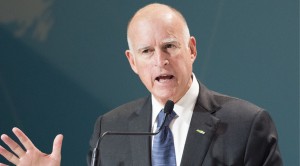 Paying for existing state commitments and continuing to add to state budget reserves were the twin highlights of the Governor’s State of the State address last week.
Paying for existing state commitments and continuing to add to state budget reserves were the twin highlights of the Governor’s State of the State address last week.
“The challenge is to solve today’s problems without making those of tomorrow even worse,” said Governor Edmund G. Brown Jr. in the January 21 address. “Our job is to clearly face the facts we do know and prepare for the many unknowns as best we can.”
He reminded listeners that since World War II, California has gone through 10 recessions, yet California budgets have been built around forecasts of continuing growth.
If deficits and surpluses between 2000 and 2016 are added up, the Governor noted, the total deficits were seven times as large as the surpluses.
Learning from Past
Recalling the deep cuts in schools, child care, social services and other important state programs that the latest shortfall made necessary, the Governor said, “I don’t want to make those mistakes again.”
California’s progressive tax system relies on the “volatile income tax” that provides 70% of General Fund revenues.
“If we are to minimize the zigzag of spend-cut-spend that this tax system inevitably produces, we must build a very large reserve,” the Governor said.
Policy Priorities
Turning to other policy proposals for the legislative session, the Governor:
• Reiterated the importance of a series of actions to deal with the drought and water supply, noting that there is “no magic bullet.” He cited the need to “recharge our aquifers, manage the groundwater, recycle, capture stormwater, build storage and reliable conveyance, improve efficiency everywhere, invest in new technologies—including desalination—and all the while recognize that there are some limits.”
He pledged to “listen and work patiently to achieve results that will stand the test of time. Water goes to the heart of what California is and what it has been over centuries. Pitting fish against farmer misses the point and grossly distorts reality.”
• Asked lawmakers “Republicans and Democrats alike, to seriously consider” the newly revised reform proposal for financing managed care organizations. The proposal is not a tax increase, and California comes out a “clear winner,” the Governor said.
• Touted the state’s move to switch from “its overly intrusive, test-heavy state control” school system to one of “local accountability.”
• Emphasized the need for further work to restore solid fiscal footing for the state’s retirement liabilities for pensions and lifelong health benefits for state and university workers.
• Called for enacting new fees and taxes to provide an expanded and permanent revenue source for fixing California roads.
• Praised the agreement from the Paris climate summit he attended as a “breakthrough” with a goal of bringing per capita greenhouse gases down to 2 tons per person. Although there are some still “in denial,” the Governor said, the rest of the word has heard the message: “Humankind must change its ways and radically decarbonizes the economy.”
Reaching the goal will “take decades and vast innovation,” the Governor said, “but with SB 350, we’re on our way.”
SB 350 (de León; D-Los Angeles) requires the state to double the energy savings in buildings and procure 50% of its energy from qualified renewable resources by 2030.



